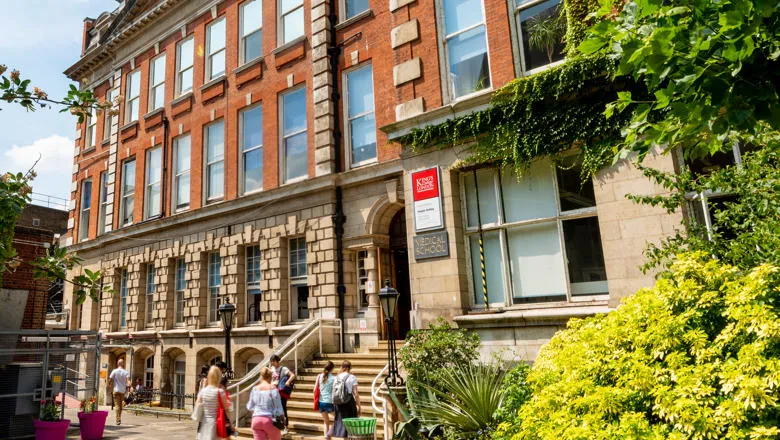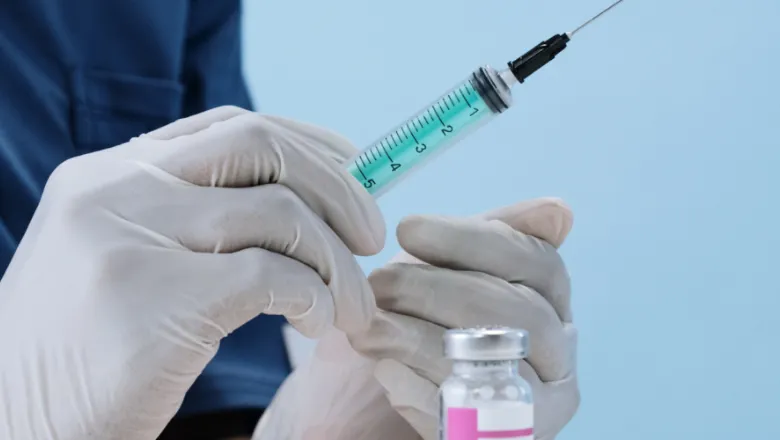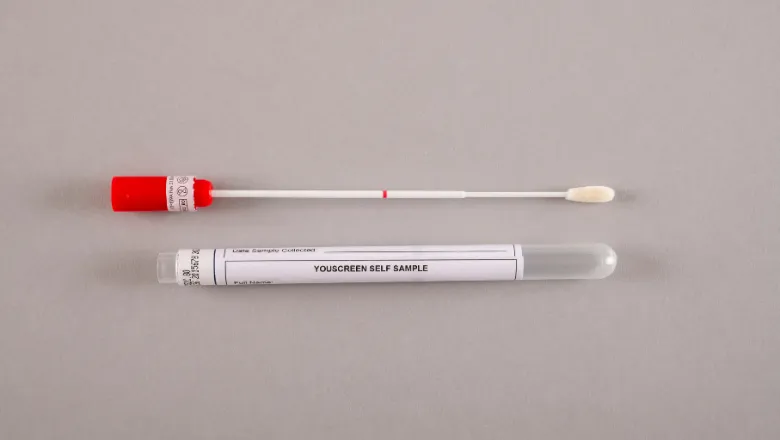13 December 2021
2021: A Year in Review
A look back at staff and student successes in 2021

Faculty response to the COVID-19 pandemic:
Researchers from the Faculty continued to investigate the SARS-CoV-2 virus and its impact. Data provided by the ZOE COVID Study App was essential to understanding the long-term effects of COVID-19 and to track the transmission of multiple variants. As the vaccine programme was rolled out across the nation, researchers found just one in four people experienced mild, short lived systemic side effects after receiving either the Pfizer or AstraZeneca vaccine. Data from the app also showed that vaccinated adults who contract COVID-19 infection experience a less severe illness, highlighting the benefit of getting vaccinated.
However, not everyone responded to the vaccines as hoped. Vital research from the SOAP2 trial found that antibody responses in cancer patients were poor, with just 39% and 13% of people with solid and haematological cancers mounting a response, compared to 97% in those without cancer. This led to a change in government policy and prioritised cancer patients and immunosuppressed patients who had yet to get their second and third jabs.
Focus on therapies to treat patients with severe or critical COVID-19 were discovered. Treatment with Interleukin-6 antagonists were found to reduce the risk of dying within 28 days, prompting the World Health Organisation to recommend their use. Niclosamide, a drug used to treat tapeworm infections, was also discovered to be effective at topping the viral replication and fusion of lung cells seen in patients with Covid-19.
Ongoing work into long-COVID made headway this year. A UKRI-NIHR funded multi-institution study found one in six middle-aged people who report COVID-19 infections also report long-COVID symptoms. Promising news found that fewer than one in 20 children with symptomatic COVID-19 experienced symptoms lasting longer than 4 weeks.

Non-COVID Research:
Researchers across the Faculty of Life Sciences and Medicine have continued to lead the way in scientific discovery across many areas of research. Over the summer, a team of researchers collaborated from several of our Schools to reveal that immune-activating antibody and genetically modified cell therapies directed against SLC3A2 can safely target tumours.
In the School of Cancer & Pharmaceutical Sciences, researchers from Kings Forensics department identified a new method to detect sperm cells that are recovered from forensic evidence. This technique aims to reduce the cost and time needed to screen items of evidence in cases of sexual assault.
Meanwhile in School of Cardiovascular Medicine & Sciences, researchers found a subset of cardiac fibroblasts that are involved in cardiac inflammation when under stress. In turn, these cardio fibroblasts might be a therapeutic target in order to treat patients with heart failure.
Elsewhere, in the School of Basic & Medical Biosciences, researchers from the St John’s Institute of Dermatology announce that a specific white blood cell test can predict whether treating psoriasis with the drug adalimumab is likely to be successful or not.
Ground-breaking research from the Cancer Prevention Group found the human papillomavirus (HPV) vaccine reduces cervical cancer rates by 87% in women who were offered the jab between the ages of 12-13. The group also launched the study YouScreen, in partnership with the NHS and Public Health England. The study delivers at-home swab kits to check for HPV, which can lead to cervical cancer. More than 31,000 women aged 25-64 years who are at least six months overdue cervical screening will be offered kits.

Staff continue to drive Faculty success:
Our colleagues throughout the Faculty – from academic to clinical to professional services staff – have demonstrated remarkable resilience in the face of new challenges, continuing to deliver innovative teaching and implement world-leading clinical trials.
A number of innovative projects led by King’s researchers received significant investments throughout the course of the year: Leucid Bio, which develops pioneering cell therapies for hard-to-treat cancers, won a considerable funding boost and a King’s spin-out exploiting the unique properties of gamma delta (γδ) T cells for immunotherapy was acquired by pharmaceutical company Takeda.
Delivering above and beyond their university roles, our staff have also managed to gain admirable professional appointments; including Professor Matthew Brown’s appointment as Chief Scientific Officer to Genomics England; Professor Lucy Chappell’s election as Chief Scientific Adviser to the Department of Health and Social Care; Professor Kevin Whelan’s appointment to the Scientific Advisory Committee on Nutrition; Professor Sebastien Ourselin and Professor Jian Dai from the Faculty of Natural, Mathematical & Engineering Science selected as Fellows of the Royal Academy of Engineering.
Finally, our staff continue to inspire in a multitude of ways, with two of our academics nominated as British Medical Association role models for Women in Academic Medicine, three of our researchers shortlisted in a national science image competition, and seven of our professional services staff recognised for their exemplary support to research.

Students at King’s continue to serve the community:
As the pandemic continued, so did the heroic work our students. One of our medical students, Josh Bekhor, received awards for volunteering in a support program for vulnerable and elderly people self-isolating at the beginning of lockdown. Pharmacology student Karim Ali was also recognised for supporting mutual aid groups combating food poverty throughout the pandemic.
But it was also a year of a new starts. And what better way to celebrate a new start than with some start-ups? The King's20 Accelerator for 2021-22 – ran by the Entrepreneurship Institute – saw several FoLSM students begin exciting new ventures. And outside of the Accelerator programme, Shreya Kalyanasundaram and Nitya Dintakurti won an award for their start-up to produce a wearable device that detects the onset of a hot flash for menopausal women.
From a global perspective, two of our students (Rebecca Hotchkin and Akshayaa Shanthan) did amazing work as interns with King’s Global Health Partnerships. They supported the health systems of Somaliland, Sierra Leone, the Democratic Republic of Congo, and Zambia with numerous projects including online teaching for medical students and fundraising measures.
Many students also claimed awards and prizes. Our iGEM student team clinched Gold in this year’s competition, thanks to their 3D printed scaffolding designed to treat spinal cord injuries. And PhD student Joshua Moo won the Christopher J Thompson award for investigating how AI could make cancer surgery more efficient.
Related departments
- Faculty of Life Sciences & Medicine
- School of Basic & Medical Biosciences
- School of Cardiovascular and Metabolic Medicine & Sciences
- School of Cancer & Pharmaceutical Sciences
- School of Life Course & Population Sciences
- School of Biomedical Engineering & Imaging Sciences
- School of Immunology & Microbial Sciences
